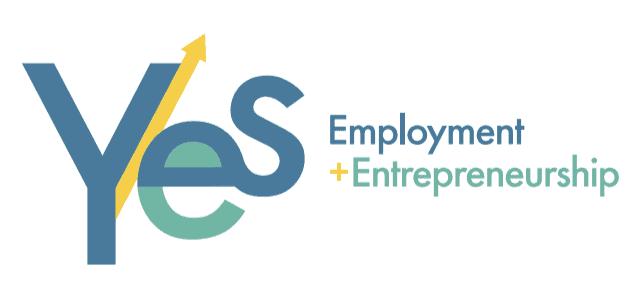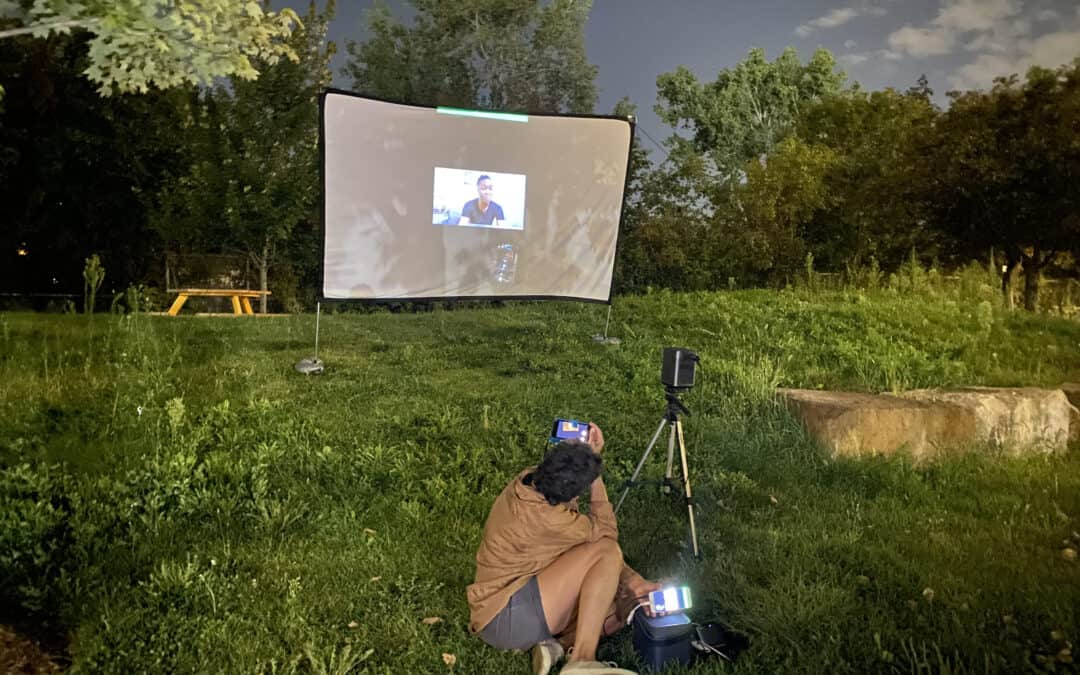Photo credit: Mackenzie Desgranges
Wielding the Power of Film to Drive Positive Change
Karin Hazé‘s artistic journey ignited during her childhood, fueled by an unquenchable passion for storytelling through the medium of cinema. Growing up in the midst of a family deeply immersed in arts and science, creativity and intellect were like the air she breathed. Karin was surrounded and influenced by arts, literature, and science, but it was when her parents introduced a tape recorder and home movie camera into their home that she felt an irresistible pull toward the enchanted world of cinema.
From the very beginning, her artistic aspirations were shaped by a profound sense of purpose. At its inception, Karin’s goal was simple but profound: to wield the power of film to drive positive change. Karin saw cinema not just as a form of entertainment but as a powerful way to use our imagination and creativity to heal ourselves by shedding light on the issues that often linger in the shadows, especially within marginalized communities.
Early Aspirations
These early aspirations were a reflection of her deep belief in the transformative potential of storytelling. Karin’s initial vision was to use film as a means to amplify the voices of those whose stories had been silenced for far too long and to shine a spotlight on the struggles and triumphs of communities that had long been ignored or misrepresented. This commitment to creating meaningful change through art is the driving force behind her work. Through the lens of cinema, Karin sought to challenge societal norms, question preconceived notions, and spark conversations that could lead to a more inclusive and compassionate world. Karin’s journey has evolved into a lifelong mission to harness the power of film for social impact.
While Karin’s artistic journey started as a childhood fascination, it quickly transformed into a purpose-driven path where storytelling and cinema became her tools for change, her means of advocating for a more just and equitable society.
YES: What stage are you at now? What have been your greatest achievements?
Karin: At this point in my career, I’ve recently founded 75 SHOTS Pocket Cinema, a member-driven non-profit film organization with a mission to combat the persecution and criminalization of LGBTQ+ artists living in countries that criminalize homosexuality. It’s a point in my life where my passion and purpose have seamlessly merged into a concrete and impactful initiative.
One of my most significant achievements doesn’t come in the form of personal accolades or traditional markers of success. Instead, it radiates through the profound impact I’ve had on marginalized individuals, enabling them to express and share their narratives and unique viewpoints with a global audience. This achievement isn’t measured in awards or recognition; it’s gauged by the voices that have found a platform, the stories that have been unveiled, the opportunities and resources that have been provided, and the dialogues that have been ignited.
Through 75 SHOTS Pocket Cinema, I’ve seen the power of film to transform the lives of marginalized individuals. It’s immensely gratifying to witness people who once felt unheard now sharing their stories with the world.
In this chapter of my artistic journey, my most significant accomplishment isn’t a personal one; it’s a collective achievement—the collective voices and stories that have been empowered and elevated through the endeavors of 75 SHOTS Pocket Cinema. This highlights the true potential of art when channeled with purpose and compassion, can be a catalyst for profound solidarity.
YES: What were/are your biggest struggles?
Karin: Ensuring the safety and well-being of our participants has been the biggest challenge, given the constant threats they face. Tragically, my dear friend, artistic partner, and collaborator, Wacyl Kha, whose spirit resonates at the core of 75 SHOTS Pocket Cinema was brutally and senselessly murdered in front of their home, regretfully reflecting the inconceivable dangers the queer community faces globally. Although we never met in person, our connection was deep like family. We collaborated remotely, sharing dreams of a world free from homophobia, a utopian realm of queer love, and a day where we would all come together and meet in person.
Instances of depression, police abuse, wrongful arrests, and violence, have added an extra layer of complexity and urgency to our mission. These security concerns are our most pressing and critical challenges.
Moreover, it’s common for participants to face prolonged periods without electricity, further complicating our work. The lack of essential resources, driven by poverty and limited opportunities, has made it exceedingly challenging to provide participants with the necessary tools and support. Many of the individuals I work with face significant accessibility issues as well.
On a logistical front, communication difficulties, including dropped calls and the need for secure channels, have hindered our ability to connect effectively. Working across different time zones and navigating cultural differences has further compounded these logistical challenges.
Personally, I find comfort in working behind the scenes, so marketing and promotion have been particularly challenging for me, taking me out of my comfort zone. The emotional, administrative, financial, and time-related aspects have all presented their own set of obstacles. However, my unwavering commitment to advocating for freedom of speech and the safety of our participants keeps me motivated, encouraging me to tackle these challenges with determination and resilience.
YES: What was the problem you were experiencing before you came into YES?
Karin: Before I discovered YES, I was grappling with monumental challenges that threatened to engulf my career. The sudden loss of my dear friend and artistic partner, Wacyl Kha, plunged me into a deep and profound struggle. Their senseless murder shook me personally to the core and I was looking to find my purpose.
Simultaneously, I was navigating the complex process of formalizing my newly established non-profit organization. My successful grants from the arts councils needed to be extended and I needed more time to structure and define the objectives of this nascent entity. The demands of this endeavor were formidable, casting a daunting shadow over my artistic journey.
These challenges, both personal and organizational, weighed heavily on my shoulders, impeding my progress and casting doubt on the path forward. It was at this critical juncture that I turned to YES seeking guidance and support to navigate the overwhelming obstacles that lay before me.
YES: What did you find as a result of using our services? What was the best thing about it? How do you feel about the service you have received from YES?
Karin: I discovered a lifeline during one of the most challenging periods of my career and personal life, and the best thing about YES was the unwavering support, guidance, and expertise my coach, David Cerenzia, offered. He played a crucial role in breaking down complex issues into tangible steps and asking the right questions, enabling me to constructively move forward. David’s compassion, coupled with his expertise in working with refugees, and international development, and his passion for the arts, made him an exceptional coach precisely when I needed it most. This support became an invaluable resource, not only for addressing immediate challenges but also for fostering long-term growth and resilience in my career.
YES: Do you have any other thoughts you would like to share?
Karin: I’d like to express my deep gratitude to YES over the years; it’s been extremely helpful in my career as an artist. Often, navigating through the bureaucratic aspects of the industry can be difficult, especially at the crossroads of my career. YES has consistently been a beacon of support, particularly during profoundly challenging moments. Through the exemplary guidance of coaches like David Cerenzia, seemingly insurmountable obstacles become manageable. This experience has reinforced my belief in the power of mentorship and the profound impact it can have on one’s journey. I look forward to paying this support forward in my own way by continuing to empower others in their artistic pursuits.
And speaking of support, I’d like to invite everyone to our upcoming fundraising event “Under the Radar” in support of 75 SHOTS Pocket Cinema on September 29th and 30th at 7 pm during Cultural Days at 3333 Boulevard Crémazie Studio 209. For more information, please visit www.cinemafeast.com or www.75shots.com and follow us on Instagram @75shotsmovie & on Facebook @75shots. Together, we can make a difference and continue our mission to amplify marginalized voices through the power of film.
To learn more about our services for Artists, click here.

